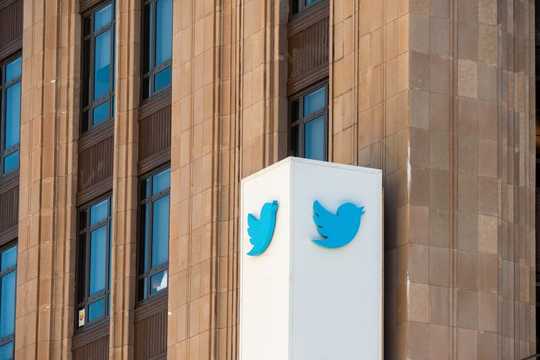
Shutterstock
Twitter has announced that it is banning paid-for political adverts, just as the UK enters a general election, saying that the reach of political messages “should be earned, not bought”.
The company has failed to eradicate bots, abuse and misinformation. Without action in these areas, banning political adverts is simply papering over the cracks. But the move does have one important function. Twitter has blown open the debate about political advertising and the threat it poses to the proper functioning of elections.
It’s easy to see why advertising on social media is an attractive prospect for political parties. Now that citizens are using platforms such as Twitter and Facebook as a source of current affairs content, it becomes prime real estate for advertising.
But just as important is the way these sites function as adverting platforms, offering parties the ability to use granular information to target users for ads. Every action you take on these platforms is collected and used to place you in advertising categories. We saw this happen in the 2016 European referendum, when the Vote Leave campaign created adverts based on detailed information such as hobbies, sporting interests and even love of animals.
We’re gradually learning that voters can be segmented by their interests and that political parties have the ability to promote inconsistent messages according to what will play well with a particular audience. Additional concerns have been raised over the use of personal data and the lack of clarity over who places adverts on social media and how they are funded.
The UK election
In the grand scheme of things, the use of Twitter advertising by UK political parties is quite limited. While the amount of money spent on social media ads increased in the 2017 election, this was not uniform across parties or platforms.
In fact, the Conservative Party spent twice as much on Facebook as all the other parties combined, directing around £3m towards the platform. Labour spent much less, choosing instead to focus on grassroots and organic tactics.
During the same election, only £56,504 was spent placing adverts on Twitter by all parties. The Conservatives spent £25,000 and the Liberal Democrats £17,177. Labour and the Co-operative parties (with which it shares an electoral alliance in some seats) spent just £6,767. So while a ban may force the Conservatives to rethink an element of their campaign strategy, it doesn’t look like Twitter was a major battleground for online ads to begin with. For most parties, the ban on political ads on Twitter will only have a minimal impact.
Why the ban?
While Twitter is not the focal point on the debate in political advertising, it has certainly been criticised for allowing parties to pay to have their adverts appear in users’ feeds rather than having to wait for their messages to be spread organically.
In his statement on banning political adverts, Twitter CEO Jack Dorsey accepted that social media ads bring great power to commercial advertisers but that such power “brings significant risks to politics”. He suggested there is a moral argument, too, when he said political messages are something that should not be bought.
There are, however, other forces at work in this decision. It could be argued that it is less about the morality of political adverts and more about the logistical struggles of managing their presence.
Twitter is yet to effectively tackle fake news and disinformation. A study by the Knight Foundation found that more than 80% of accounts involved in spreading disinformation during the US 2016 election are still active and have yet to be detected by the platform.
Twitter is also behind other platforms on transparency. It has an Ads Transparency Center, but it’s harder to use and was failing to correctly label political adverts. This makes it less useful for transparency than Facebook’s equivalent. Indeed, the European Commission, has highlighted Twitter’s shortcomings on this point.
So considering that political parties don’t seem to prioritise Twitter anyway, one has to wonder if this was actually more a business decision. Would the financial investment required to build functional transparency tools and systems to detect underhand political adverts ever be recouped? Or would it just be easier to opt out of the fray?
What is – and isn’t – a political ad?
Of course, merely banning political adverts does not resolve the issue. Twitter has now given itself the responsibility of deciding what is, and what isn’t, a political advert.
Clearly adverts by politicians and parties promoting a cause or asking for votes will be banned. But Twitter has not yet provided detailed guidelines beyond this line. Is the advertising of Planned Parenthood services in the United States political, for example? Many would argue not, but those who are anti-abortion could suggest otherwise. What about commercial adverts which attempt to be “woke”, such as when the food chain Iceland released an advert advocating for the ban on palm oil in its food? Does the underlying political sentiment count as a political message to Twitter?
It might be that we are placing too much pressure on social media sites to fix these problems. Twitter can help mitigate aggressive political discourse and fake news but should we not also consider that society should be responsible for teaching its citizens not to fall for misinformation – or teach those who seek to represent us not to spread it.
In the UK specifically, the Electoral Commission has asked to be granted more power to regulate political spending on social media. At present, there is no law requiring political parties to disclose who paid for online advertising, even though they have to do so for printed ads. Shouldn’t this be the first port of call, rather than expecting Twitter to regulate on our behalf, as and when it sees fit?
So despite the issues raised by the ban of political adverts by Twitter, and the fact that it is not a solution to the social media’s more extensive problems as a space for political debate, this news will still certainly have a significant impact. It has relaunched the issue of political ads into the public consciousness before two key elections. Hopefully that will make citizens more aware of what, and why, they see in their social media feeds.
It also shows that it is possible to ban political adverts. It shows that concern about free speech don’t have to be such a big deal if the price is threatening other democratic principles. I think the question on the tips of all our tongues is this: will Facebook follow suit?
About the Author
Liam Mcloughlin, PhD Researcher, Politics & Contemporary History, University of Salford
This article is republished from The Conversation under a Creative Commons license. Read the original article.
Related Books
Climate Leviathan: A Political Theory of Our Planetary Future
by Joel Wainwright and Geoff Mann How climate change will affect our political theory—for better and worse. Despite the science and the summits, leading capitalist states have not achieved anything close to an adequate level of carbon mitigation. There is now simply no way to prevent the planet breaching the threshold of two degrees Celsius set by the Intergovernmental Panel on Climate Change. What are the likely political and economic outcomes of this? Where is the overheating world heading? Available On Amazon
How climate change will affect our political theory—for better and worse. Despite the science and the summits, leading capitalist states have not achieved anything close to an adequate level of carbon mitigation. There is now simply no way to prevent the planet breaching the threshold of two degrees Celsius set by the Intergovernmental Panel on Climate Change. What are the likely political and economic outcomes of this? Where is the overheating world heading? Available On Amazon
Upheaval: Turning Points for Nations in Crisis
by Jared Diamond Adding a psychological dimension to the in-depth history, geography, biology, and anthropology that mark all of Diamond's books, Upheaval reveals factors influencing how both whole nations and individual people can respond to big challenges. The result is a book epic in scope, but also his most personal book yet. Available On Amazon
Adding a psychological dimension to the in-depth history, geography, biology, and anthropology that mark all of Diamond's books, Upheaval reveals factors influencing how both whole nations and individual people can respond to big challenges. The result is a book epic in scope, but also his most personal book yet. Available On Amazon
Global Commons, Domestic Decisions: The Comparative Politics of Climate Change
by Kathryn Harrison et al Comparative case studies and analyses of the influence of domestic politics on countries' climate change policies and Kyoto ratification decisions. Climate change represents a “tragedy of the commons” on a global scale, requiring the cooperation of nations that do not necessarily put the Earth's well-being above their own national interests. And yet international efforts to address global warming have met with some success; the Kyoto Protocol, in which industrialized countries committed to reducing their collective emissions, took effect in 2005 (although without the participation of the United States). Available On Amazon
Comparative case studies and analyses of the influence of domestic politics on countries' climate change policies and Kyoto ratification decisions. Climate change represents a “tragedy of the commons” on a global scale, requiring the cooperation of nations that do not necessarily put the Earth's well-being above their own national interests. And yet international efforts to address global warming have met with some success; the Kyoto Protocol, in which industrialized countries committed to reducing their collective emissions, took effect in 2005 (although without the participation of the United States). Available On Amazon
From The Publisher:
Purchases on Amazon go to defray the cost of bringing you InnerSelf.comelf.com, MightyNatural.com, and ClimateImpactNews.com at no cost and without advertisers that track your browsing habits. Even if you click on a link but don't buy these selected products, anything else you buy in that same visit on Amazon pays us a small commission. There is no additional cost to you, so please contribute to the effort. You can also use this link to use to Amazon at any time so you can help support our efforts.

























